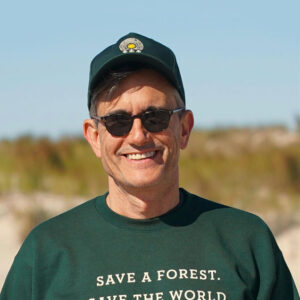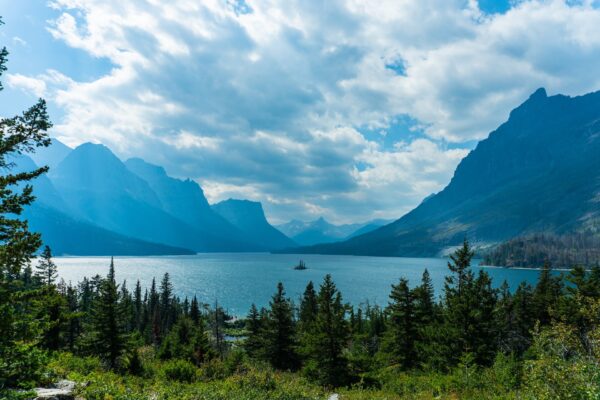
Jack Stephenson
Co-Founder and CEO
Jack Stephenson is founder and CEO of The Copernicus Project (TCP), a technology startup focused on rapidly scaling up nature-based climate solutions. TCP empowers communities to fight global warming by providing easy-to-use tools to improve the long-term ecological health of the places they live and love.
Jack spent 22 years at McKinsey & Company, where he advised and served on the boards of some of the world’s top conservation NGOs. In 2007, he co-authored a groundbreaking research report analyzing over 250 opportunities to reduce U.S. greenhouse gas emissions. The big “aha” was that up to 40% of emissions reductions scientists called for by 2030 could be achieved at negative cost.
Jack worked in Silicon Valley for 15 years, with a heavy focus on mobile payments and digital commerce. He and his teams launched technologies and applications used today by hundreds of millions or people, winning numerous awards, including Best Innovation of the Year from the New York Times.
In 2020, Jack led a nature-based climate strategy project for the Wildlife Conservation Society and discovered much of what he knew about fighting climate change was wrong. The data, frameworks, and accounting systems used by most policymakers massively understate the benefits of protecting the natural world.
Jack serves on the boards of the Pacific Forest Trust and jaris and sits on the President’s Council of the Wildlife Conservation Society. He is a fourth-generation Montanan and part-owner of Stephenson Ranch, which promotes healthy forests and regenerative agriculture.
Three Questions
- When did you first realize you wanted to do what you do? (e.g., formative experience or discovery)
I guess you could say I was born a conservationist. I’m a fourth-generation Montanan and our family has a long history of caring for nature. At McKinsey & Company, I got the opportunity to work with many of the world’s leading conservation organizations. I even took a 6-month sabbatical to develop the international conservation strategy for The Nature Conservancy in 1993. I became something of an expert on international conservation and got to travel all over the world, mostly in developing countries, advising international NGO’s on how to increase the impact of field-based conservation efforts.
- To learn more about you or the field you work in, what 3-5 books/resources do you recommend?
Why Forests, Why Now? The Science, Economics, and Politics of Tropical Forests and Climate Change by Frances Seymour and Jonah Busch. Read this book first. Simply the best and most comprehensive book on the multiple benefits of protecting and restoring tropical forests.
Special Report on Climate and Land Use – IPCC Special Report on Climate Change and Land Use. Everything you need to know about why the conventional orthodoxy on climate is wrong and what to do starts here. (Remember the UNFCCC and IPCC go out of their ways to exclude nature as a legitimate climate solution!)
Planetary Health: Protecting Nature to Protect Ourselves. This book came out in 2020 and I carry it with me most places I go. It provides a holistic view of the challenges we face and proposed solutions from top experts in everything from biodiversity to climate to food to economics. Chock full of valuable data and statistics!
The Overstory by Richard Powers. Award-winning, beautifully written novel where forests are the protagonists. If this doesn’t turn you into a climate actionist, nothing will!
Ever Green: Saving Big Forests to Save the Planet by Tom Lovejoy and John Reid. The best book written making the case for protecting the last of the world’s five remaining forests. Lovejoy is one of the highest-impact conservationists that ever lived. While at WWF, through the sheer force of personality, made the Amazon a global biodiversity hotspot.
Ecological Forest Management by Jerry Franklin, K. Norman Johnson, Debora L. Johnson. Everything you ever wanted to know about the state of U.S. forests and how to maximize their productivity to society is in here. Dr. Franklin is often referred to as the “father of modern forestry.” And he’s a friend of mine.,
Regeneration: Ending the Climate Crisis in One Generation by Paul Hawken. Hawken and Project Drawdown have done a masterful job of quantifying the impact of nature-based solutions and giving detailed instructions on what to do. Action-oriented and not overly academic. FYI there is no way to end the climate crisis because — spoiler — man is not powerful enough to control the climate.
- What publications should we subscribe to? Websites, newsfeeds, pod-casts? People to follow?
The Guardian is a non-profit newspaper with some of the best environmental journalism there is.
Mongabay is also a first-rate publication, mainly targeting protecting ecosystems in developing countries.
Inside Climate News is a terrific organization, covering a wide range of climate-related topics, with a heavy focus on direct climate action in the U.S.
Grist is awesome, with daily updates on an array of climate news. Their focus is on climate justice, advocacy and political action, targeting a younger demographic. Let’s face it, it’s Millennials and Gen Z that will save the planet not us old folks.
All of the above can link you to pod-casts, videos, and experts that match your interests.
For science and research:
I subscribe to a variety of scientific publications. Nature and, specifically Nature Climate Change, is probably best and most in-depth scientific journal you will find on climate. Not for the faint of heart!
Conservation Land Use Alliance is a terrific resource, with tons of research on and hands-on experience implementing nature-based climate solutions.
World Resources Institutes is the single best environmental think tank there is, with truly a global perspective. Their work on Sustaining Forests for People and Planet is outstanding!

photo: David Morris
“I’m a fourth generation Montanan and our family has a long history of caring for nature.”
– Jack Stephenson
